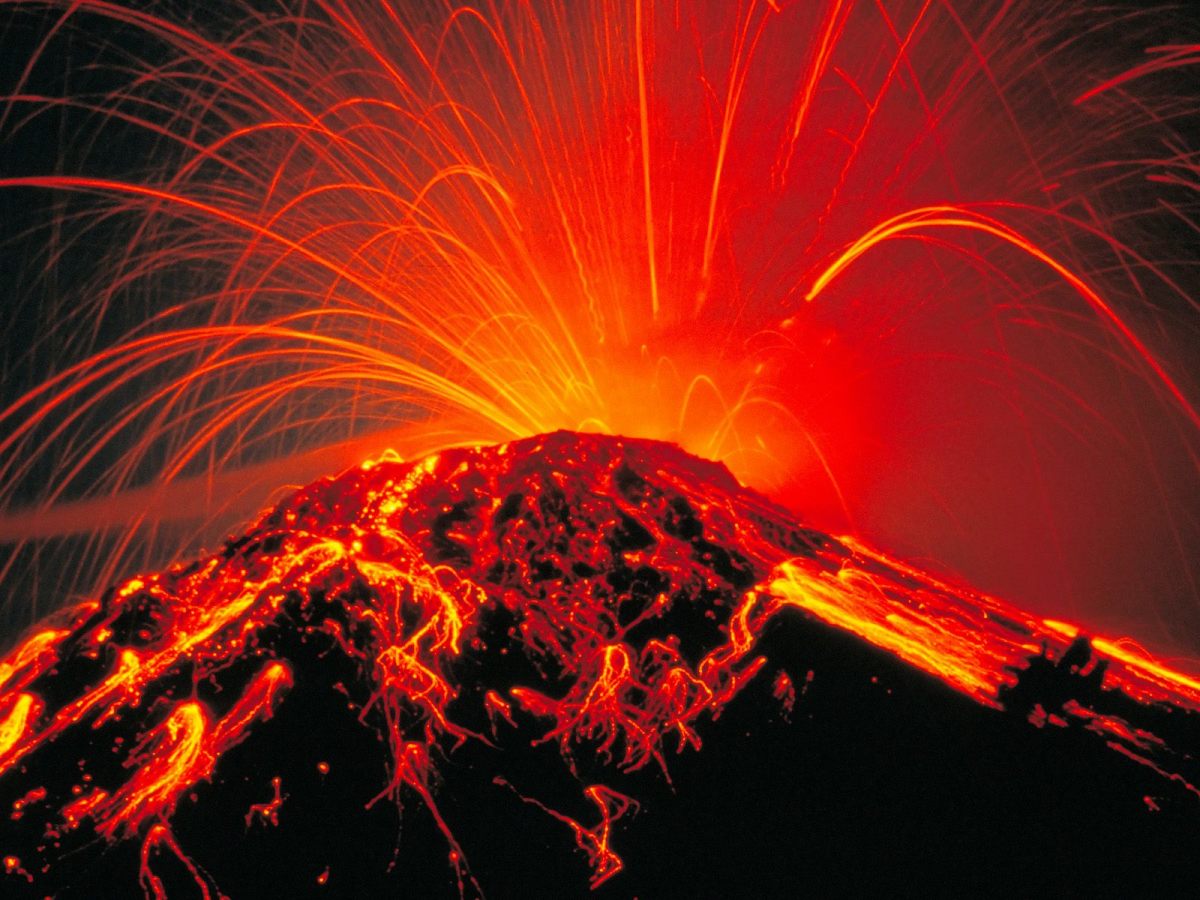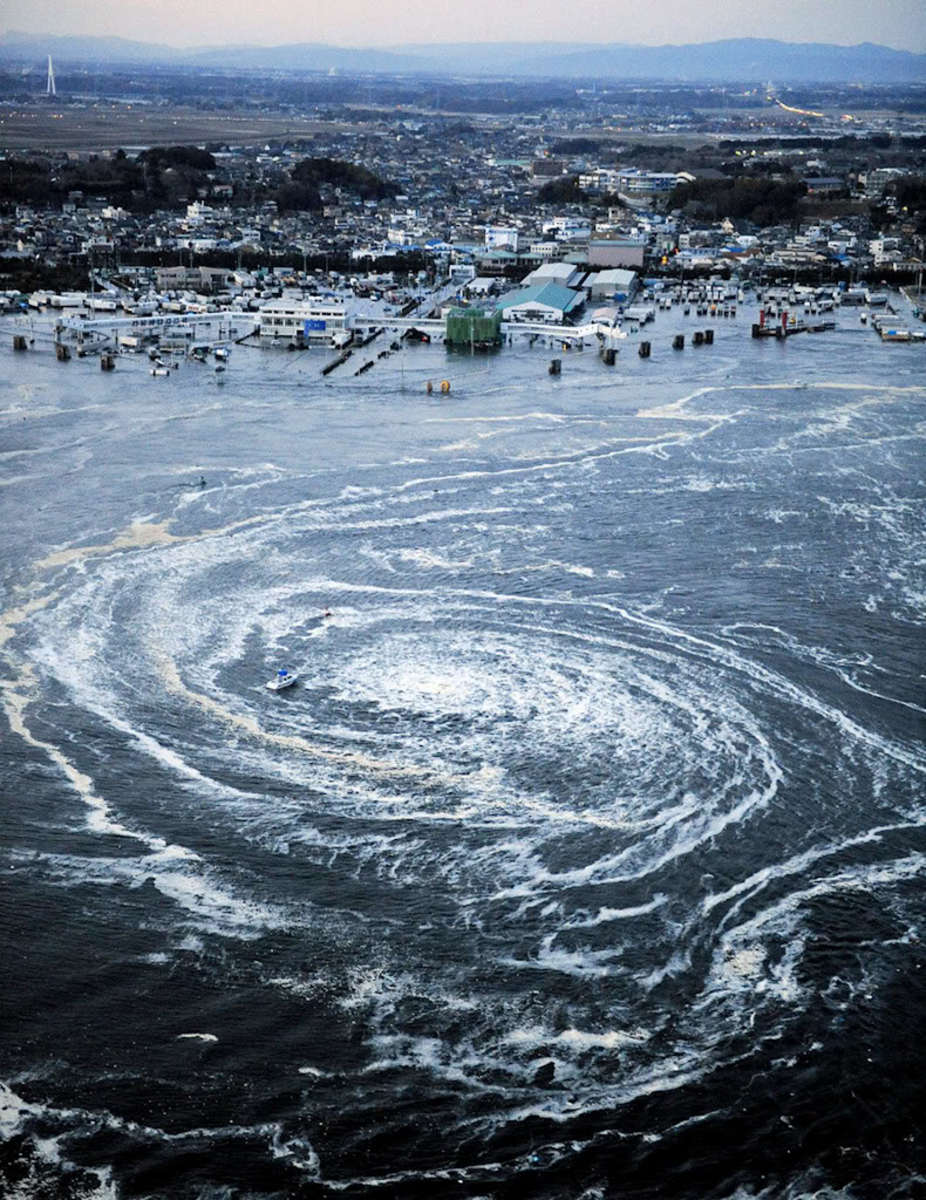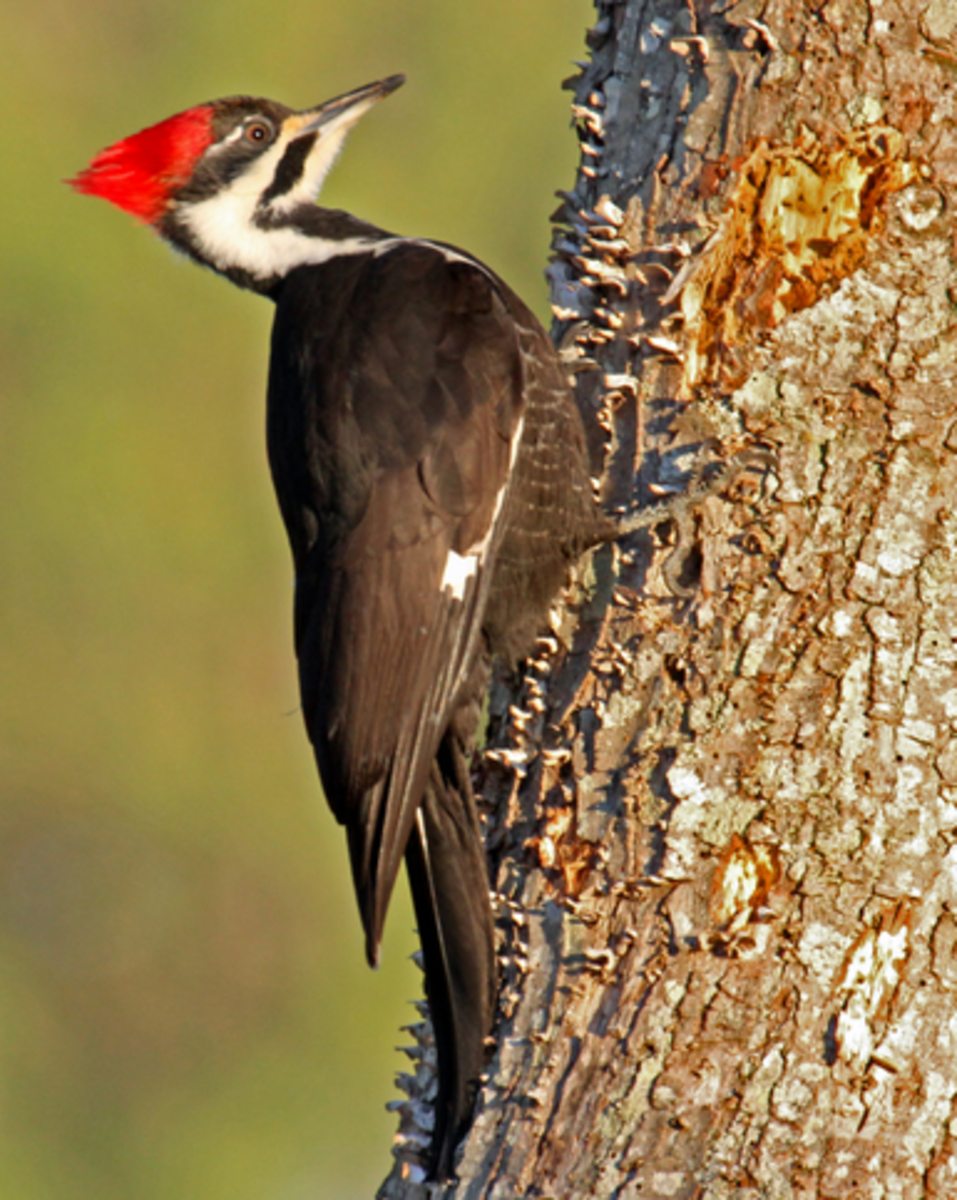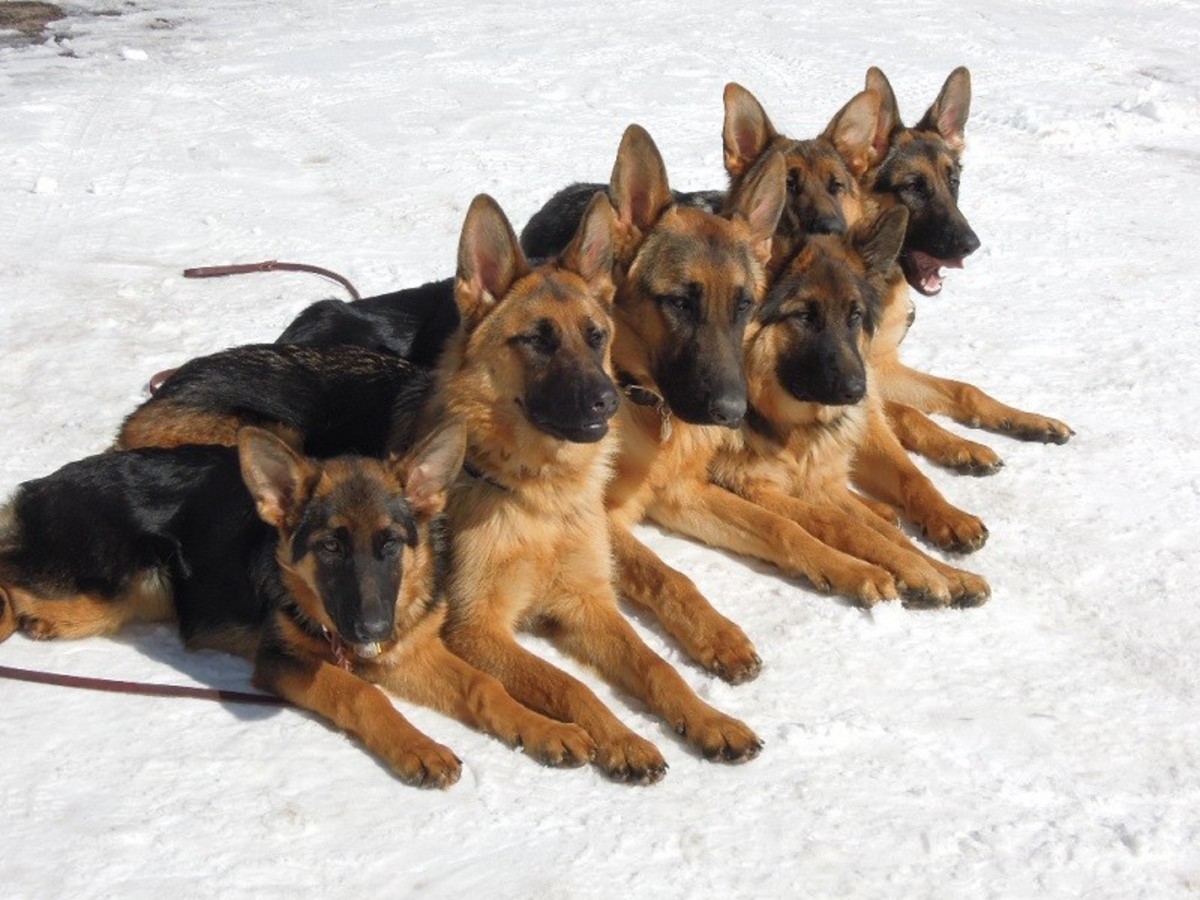Can Animals Predict Natural Disasters - The Connection Between Nature and Animals
Can Science Do a Better Job of Predicting Natural Disasters than Animals?
Do animals have a sixth sense to be able to predict earthquakes?
Earthquakes, tsunamis, volcanic eruptions, hurricanes, tornadoes, landslides, forest fires, storms, and the list goes on. These are the natural disasters that make headlines too often in a year. Very often, it comes without sufficient warning. We are left powerless to protect ourselves against the violent, swift and arbitrary stamp that nature leaves in its destructive path.
With little that we can do in the battle with nature’s fury, we look to science to assist us in predicting anything that will offer us some shield against the torments we face from weather, and other planetary events. We view ourselves as the smarter species. We have technological advancements and scientific studies that help us understand what is happening. Yet, when you read stories like the Tsunami in 2004 in Thailand and learn that every animal that was free to move on their own, escaped the tsunami unscathed. According to Wikipedia.com the human death toll was nearly 228,000, many of whom were swept away from the tsunami waves.
Animals Have Been Known to Sense Natural Disasters
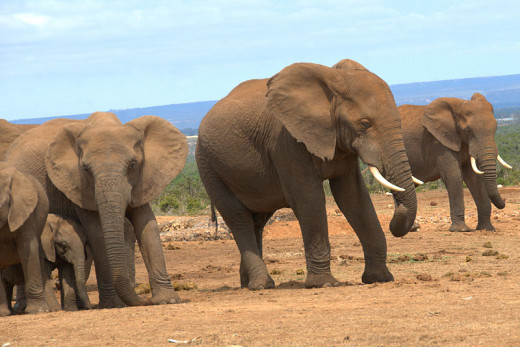
Animals May Be a Good Forecaster of Events that Happen in Nature
Earthquake Research receives only $50 million in Funding
Berkland believes that animals may be reacting to an imbalance in Earth’s magnetic field that occurs from the pre seismic activity. Berkland believes all animals have ties to Earth’s magnetic field. Even NASA believes that electromagnetic waves can be generated from the stresses in Earth’s rock. This phenomenon is known as the piezoelectric effect. Other geologists feel that these theories may have too small an effect to be able to prove that animals can predict earthquakes. The science community has noticed that Berkland has many false alarms too. Earthquake programs get less than $50 million in funding, which is 1/10th of what an individual space shuttle mission gets. Geologists are hesitant to spend their limited funds on testing the animal alarm theory.
A Geologist Can Predict Earthquakes With Animals
Animals Have Been Observed Behaving Oddly Before Nature Strikes
Many people have witnessed their pets behaving oddly before earthquakes. Prior to the earthquake in Sichuan China in 2008, zoo animals were acting unusual. Some species like dogs can hear sound frequencies that may be related to the shifting of the earth. Hippos can sense low frequency sound waves also. Elephants and other animals might pick up the rumblings from the ground before they turn into a full force earthquake.
Scientists believe earthquakes are unpredictable and animals can’t predict earthquakes with any accuracy. There is the mind of the scientist and there is the mind of the animal lover. Scientists need proof, animal lovers trust the instinctive nature of animals.
Animals and Predicting Nature
Do you think animals can be a reliable source of predicting impending natural disasters?
Farm Animals Can Sense Storms Approaching
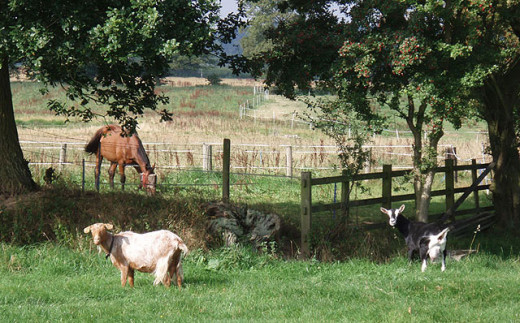
Geologists Believe Many Animal Theories are Myths
Domestic Animals also Sense Nature's Changes

Is it a Sixth Sense or Do They Use Their Five Senses Better than We Do?
Besides predicting earthquakes, on farms, chickens and other animals become nervous before a storm strikes. It is believed that animals probably do not have a sixth sense about meterological or earthquake event. Rather, it is believed, they use their five senses in a superior and more efficient way than human beings use their senses. Most animals can hear better, and they may be more in tune to nature than humans do. Hurricanes, for example produce sound waves at too low a frequency for humans to hear, but in a range, they are able to pick up. This could give the animal warning for an impending storm. Air and water pressures change with altered weather patterns and an animal may sense this difference. Changes in barometric pressures may indicate to the animal to go into a protective mode to seek shelter. It may merely be a survival instinct that allows them to perceive, what we cannot. In tropical storms, it has been noticed that even sharks swim into deeper waters, from a slight drop in the barometric pressure. Birds and insects also pick up the tiniest changes and will find safety in their nests, hives, rocks, etc.
Dog Barking Increased in Japan Prior to Many Earthquakes
A dog’s sense of smell could be as much as 100,000 times better than a person’s. Dogs have been know to be able to smell certain types of cancer in people. It has been said that dogs can smell fear. They may pick up that fear sense from other animals who perceived the impending disaster in a different way, or they may smell chemical changes in the air from the earthquake or other event. Scientists think some animals can see ultraviolet light and other sensations, we may not be aware of.
Some have watched animal behavior before winter arrives. American Indians used to observe where bears went to hibernate to determine the severity of the upcoming winter season. They would look at how deep the bear cave was, and look at the fur on the bear’s paws. Heavy fur would mean a snowier, colder winter.
Going back to several years ago, and prior to the series of events affecting Japan after the earthquake on March 11, 2011, a Japanese doctor, named Kiyoshi Shimamura had noticed an increase in dog bites and other odd dog behavior just prior to major earthquakes in Japan. Not only did dog bites increase, but excessive dog barking increased 18% in the months prior to an earthquake. At the epicenter, there was a 60% increase in dog barking complaints. Scientists refute that the dog barking may be related to seismic events. Animals may see birds fleeing, or unusual sounds or other mammals, and take these cues to mean something is happening. There are no clear answers as to what makes them know, but it is apparent they listen to their instinct. Science does agree that animals are responding to real perceptions from the environment, and do not think it is additional sense that enables them to react to what may be imperceptable to us. Few believe this is a paranormal event.
Animal Stories and the Tsunami in Thailand 2004
In all likely animals are better designed than we are, to pick up the slightest changes to temperature, sound, vibration, electromagnetic fields, atmospheric pressure changes and even chemical activity. This ability to sense these variations gives them a perceptive ability to survive great danger. This may be a highly developed aspects of animals, or it may be a basic primal trait that has enabled the species to survive millions of years.
Shortly before the Dec 26th tsunami in Thailand, about 12 elephants began trumpeting calls from a village 50 miles north of where the tsunami struck. It correlates with the timing of the 9.0 earthquake in the ocean. About an hour prior to the waves reaching shore and causing the massive destruction, elephants again became agitated, and ran for higher, safer ground. Flamingos, and other birds left the area well before the tsunami hit. In the Yala National Park, in Sri Lanka, an area very hard hit by the tsunami, all the wildlife from leopards and tigers, to bore, water buffalo, deer, monkeys, reptiles and elephants escaped to higher ground. No animal big or small was harmed by the tsunami. Witnesses said they saw dogs running to the hill tops way before any human even conceived that a tsunami could be arriving. Bats, which are normally nocturnal were awake and active about 30 minutes prior to the tsunami. People have told stories of their dogs refusing to go for their daily walk on the beach that morning. Monkeys were refusing treats of bananas, all prior to the tsunami.
Perhaps We Need to Stop Our Busy Lives and Listen to Nature
With all the sophisticated technology, we have, with our higher brain capacity, and with our ability to dive below the sea and zoom into space, it leaves the question, what did these animals know, that we did not, or could not perceive? With all the technology we have, scientists are not able to predict earthquakes. It is important to be prepared. We need to consider that animals, from mammals to birds and bugs have abilities we do not. Their senses are superior to us in many ways,and this allows them to perceive things we may not be aware of. Or maybe animals live closer to nature, they live simpler lives and perhaps they are more in tune with nature and themselves and these cues give them survival skills we have lost in our overly technological and busy lifestyles. While science looks for an explanation, the innate survival ability of animals large and small is something we all need to pay more attention to, and learn more about.
Our thoughts and prayers are with the people in Japan and all the people around the globe who have loved ones in Japan. WE ARE ONE WORLD!
You Can Read More About Animals from the List Below the Comments
To Read More About Animals See the List Below

More About Earthquakes and Tsunamis
- Explanation of Powerful Earthquakes,Tsumanis, Aftershocks, Whirlpools and Vortexes-Earthquake in Jap
earthquakes are caused by the movement of the earths tectonic plates (broken pieces of the earths crust) tectonic plates are in constant motion, moving past each other, towards each other, and away from...
Dogs
- A Puppy Sells for $1.5 Million - How Much Is That Doggy in the Window?
What is the most expensive breed of dog? An 11 month old puppy that weighs 180 pounds just sold for $1.5 million. The dog is a red Tibetan mastiff, and was sold to a Chinese a multimillionaire businessman, a... - Dogology: Dog foods, Dog treats, and Dogs Care Nutrition
Choosing The Right Dog Food and Dog Treats It is important to read ingredients on the dog food and dog snacks you give your canine companion Choosing the best dog treats for your lovable pet is one... - Dogology: Petcare and Your Pets Teeth
Dental Issues that arise with pets teeth can be costly for the pet owner, and cause discomfort for your dog or cat. There are preventative petcare solutions that can help give your pet the benefits of... - Dogology: Dogs PawPrints in History Part 2
Famous and Legendary Dogs in Ancient Times Historic Moments and Dogs Were There (Part II) From Ancient China to the New World, the oldest breeds began to travel across the... - Dogology: Famous Dogs Paw Prints in Ancient History Part I
Dogology: PawPrints in History Famous and Legendary Dogs in History Historic Moments and Dogs Were There (Part I) Around the globe and through the span of time humans and dogs have shared a history... - Dogology: Dogs Uncanny Intelligence
Dogology: Dogs Uncanny Intelligence and Social Behavior In this article: Dogs behavior and their natural social instinct Apes vs Dogs Dogs sensitivity towards people Evolutionary... - Dogology: Why are Dogs so Different in Shapes Sizes and Types?
Dogology: Lovable Dogs in Different Shapes Sizes Types Canines are all the same species but look so different: WHY? What's in this article: Dogs in all different sizes All dogs have the same...
More About Pets and Animals
- Butterflies - Winged Wonders - A Gift of Nature
I have entomophobia. It is caused by bugs. But dont worry. It is nothing serious. Entomophobia is the fear of bugs. Yet, I am not afraid of butterflies, ladybugs, grasshoppers and praying mantis And on... - Animalology: Dolphins - Social Animals of the Sea - Intelligent, Charming, and Good Looking Too
In a spontaneous moment we took a private charter, just my family, and a man who owned a boat. He claimed he knew where the dolphins played and would take us to see them in pods of 50 to 60 where they lived in... - Peoplality: Big 5 Personality Traits and Their Pets
Every aspect of our lives has a connection to our personality. From the clothes we wear, the profession we engage in, and even the pets we love say something about our personality. A common theory about... - Petology: Pet Insurance - Is it Logical or Should You Set Up a Pet Emergency Account?
We love our pets, and we will do whatever we can to keep them healthy and save them, provided it is in the better interest of our pet, and we can afford it. When comes to choosing the latter, most of us... - Petology-Earth Friendly Pet Products
Natural pet products are becoming more commonplace and easier to buy, with bigger selections, and an expanding product lines. Pets are part of the family, and as the trend for earth friendly products... - Petology: Loving Our Pets All Year Long
According to a survey done by Reuters, twenty four thousand people across 23 different countries would rather kiss their pet than their partner on Valentine's Day. The French were the least likely to pick... - Petology: Pet Food Intelligence
There are many options to choose from when deciding which pet food you will feed your pet. Do you want your pet to dine on dry, wet, semi moist? Is holistic food or price of the pet food a... - Petology: Pet Nutrition Products
Pet Vitamins and Pet Nutrition Products People take vitamins and it is becoming increasingly popular for their pets to get the same nutritional supplements, as part of the pet nutrition products we... - Catology: Pet Nutrition Products and Protein for Your Cats
Pet nutrition products are on the mind of just about every pet owner. About a third of households in the United States have cats. That translates to a lot of people buying a lot of cat food. It is important... - Animalology: Dolphins - Social Animals of the Sea - Intelligent, Charming, and Good Looking Too
In a spontaneous moment we took a private charter, just my family, and a man who owned a boat. He claimed he knew where the dolphins played and would take us to see them in pods of 50 to 60 where they lived in... - Animalology: Dolphins - Social Animals of the Sea - Intelligent, Charming, and Good Looking Too
In a spontaneous moment we took a private charter, just my family, and a man who owned a boat. He claimed he knew where the dolphins played and would take us to see them in pods of 50 to 60 where they lived in... - Butterflies - Winged Wonders - A Gift of Nature
I have entomophobia. It is caused by bugs. But dont worry. It is nothing serious. Entomophobia is the fear of bugs. Yet, I am not afraid of butterflies, ladybugs, grasshoppers and praying mantis And on... - Butterflies - Winged Wonders - A Gift of Nature
I have entomophobia. It is caused by bugs. But dont worry. It is nothing serious. Entomophobia is the fear of bugs. Yet, I am not afraid of butterflies, ladybugs, grasshoppers and praying mantis And on...



